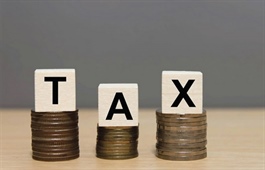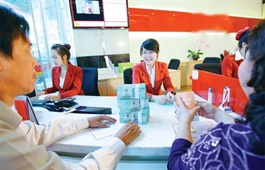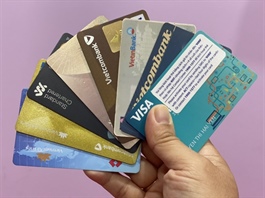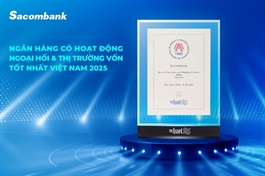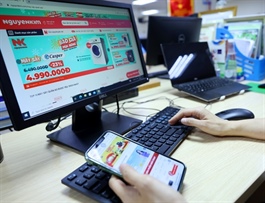Hiccups felt during counterfeit crackdown
Hiccups felt during counterfeit crackdown
The increased oversight and crackdown on counterfeit goods, goods without invoices, and those of unknown origin are causing anxiety and the temporary suspension of operations among household businesses.
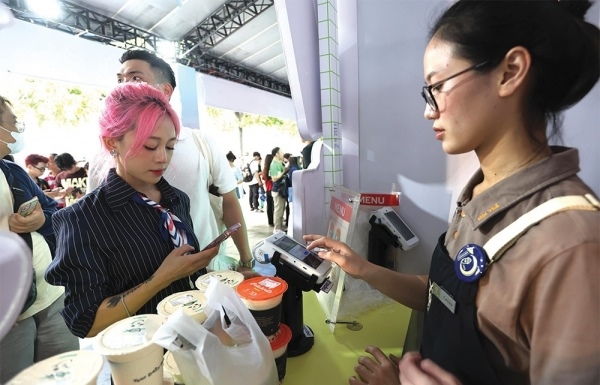
Hiccups felt during counterfeit crackdown, Photo: Le Toan |
Tax authorities are working to guide and support such businesses in understanding and implementing new regulations on invoicing and tax collection.
In June, many shops and stalls in major cities abruptly closed and temporarily ceased operations. Ninh Hiep Market in Hanoi’s Gia Lam district – the largest fabric and clothing trading centre in the north – has now fallen into a noticeable lull.
According to traders, the market management force has recently intensified inspections. As most goods are liquidated stock or sold by weight without proof of origin, businesses are concerned about potential confiscation and fines, prompting many to close temporarily to avoid risk.
In addition, some closures were driven by poor performance and fierce price competition from e-commerce platforms in recent years. Some retailers have abandoned physical stalls entirely in favour of online sales.
Hoang Huong, owner of a clothing kiosk at the Dong Xuan Market in Hanoi, said she had just reopened after closing for several days to consider her next steps. “My goods mainly come from small processing factories and individual suppliers. They issue handwritten receipts, without e-invoices from the tax authority,” Huong said.
Similar situations are occurring elsewhere, including on streets in Hanoi’s Hoan Kiem district, and Nguyen Trai street in Thanh Xuan district, following Hanoi People’s Committee’s campaign against counterfeit goods and those lacking invoices.
Many shops selling hand-carried goods have also shut their doors. Several stores specialising in supplementary foods and hand-carried cosmetics on Quan Thanh street have remained closed for over a month since the campaign began. Now, they serve only regular customers, with most transactions taking place indoors.
“My products are authenticated from the United States, Europe, Japan, and South Korea, but we do not have sufficient valid invoices or documentation to sell them publicly in Vietnam,” said Le Thi Hoai, a shop owner. “Like us, many hand-carried goods sellers have temporarily closed while awaiting clearer guidance and policy from authorities. In the meantime, customers can still reach us by phone or text message for advice and purchases.”
Meanwhile, on Chua Boc street, home to many large fashion retailers, business has gradually stabilised following inspections. A shop employee said, “We continue to operate as usual. All our goods have complete invoices. We use cash registers and issue invoices to customers. We declare and pay taxes in accordance with regulations.”
“Most households and individuals stopped operating in June not because of tax policy itself, but due to fear and limited understanding of new regulations, as well as intensified enforcement against counterfeit, fake, and smuggled goods,” said Nguyen Thi Cuc, chairwoman of the Vietnam Tax Consulting Association. “We must increase communication so that business households understand and comply with the new management approach, avoiding confusion and misunderstanding.”
Many traders and small retailers in traditional markets are working well with tax authorities to apply e-invoices generated from cash registers. Recognising the benefits of transparent business practices, convenient accounting, and increased customer trust, many households have proactively installed equipment and followed guidance from tax officials.
“This shift in awareness not only helps modernise tax administration, but also promotes a more civilised consumer culture, with the use of invoices and guarantees,” Cuc added.
According to Hanoi Tax Department, the city has more than 311,000 business households and individuals. In May and June, 2,960 of them temporarily suspended operations. However, only 263 of these were required to use invoices, accounting for around 8.8 per cent, and just 5 per cent are subject to mandatory use of e-invoices from cash registers.
The Ministry of Finance is also proposing to eliminate the concept of “business households”, maintaining only “business individuals” who will use their personal ID number as their tax code to facilitate data connectivity and management. Additionally, all business individuals would be required to register their operations, removing the current exemption for some.
- 15:31 03/07/2025










